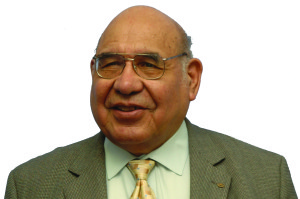Over time I have become aware of the commitment required by an individual who seeks to become an elected official. Locally, this begins by deciding to become a member of a local jurisdiction’s board (school boards, water districts, etc.). This requires a high level of motivation and energy to ‘run a political campaign’ in order to garner votes needed to be successful…i.e., receive enough votes to win; to be installed as an elected official who represents his/her community. In addition to personal motivation and commitment, underwriting an election campaign requires the ‘raising of campaign funds’ (and submitting reports in a timely fashion to the local FPPC (Fair Political Practices Commission).
Recently I decided to contribute only to local candidates and organizations. As a registered Democrat, I feel abused when I receive phone calls soliciting funds for the regional and national levels (Senator; Representative, State Assembly legislature, etc.). Why decide to contribute to local elections? Simply because one can become personally involved by volunteering to man phone banks; do office work; walk precincts; and do these things while meeting neighbors who have similar public policy concerns.
Ron Unruh, a California elected official, quipped, “Money is the mother’s milk of politics.” Over the years, especially since Blanca Alvarado competed with Anita Duarte to be the first Latina SJ City Council member, District 5, EO has encouraged local Latina/o’s to run for elected office….beginning with local districts. Many of these offices come with a modest salary and allowance for reimbursement for the usual and customary expenses incurred.
What more community members need to consider doing is to support local candidates with their discretionary personal funds. Elected officials, such as Supervisor Joe Simitian have not needed to accept ‘special interest funds’ because his district’s constituents provide sufficient contributions so there is no need to accept funds from any special interest, whereby acceptance implies and often leads to being ‘beholden’. When the community at large supports their local elected official, major donors do not need to be solicited nor is their ‘dark money’ needed. It is the community which ends up being the focus of that locally supported elected official’s efforts.
Residents, especially Latina/o’s, need to consider supporting their local Latina/o’s, candidates. The records at SJ City Clerk’s Office reveal that a certain Latino candidate raised only $22,000 in campaign funds (in contrast to the $125,000 his competitor garnered). Since money enables the payment of campaign materials, staff, office space, and phone (or social networks), the level of funding determines the level of outreach effort possible. Those with sufficient funds tend to become elected.
Why help support an elected official? Simply because the jurisdiction is a public enterprise…i.e., an enterprise that conducts the people’s business and manages its publicly held assets and provides services (such as filling potholes or trash collection; libraries).
The City of San Jose is an enterprise (business) which manages $4,900,000,000 ($4.9 billion) and employs thousands of career civil servants (city manager, staff, police, firefighters, librarians, etc.).
The County of Santa Clara is a $5.9 billion enterprise. Santa Clara Valley Water District, local school districts, etc. are all local enterprises wherein local citizens are ‘stakeholders’ through the payment of fees and income, property and sales taxes. These become the public revenues which elected officials manage as public policy decision makers.
Just think of it….You have access to a personal corporate experience when you become involved and engaged in local governance as an elected official. Given the lack of knowledge in the general community about local civics and a variety of special district jurisdictions, it is a good idea to begin attending a local agency’s board meetings. This exposure will provide ‘on the job training’ about how reports which address specific issues are addressed, researched, consultants hired, budgets formulated and approved; uses of Robert’s Rules of Order (parliamentary procedures are a decision making system); and the acronym jargon used by professionals. An elected official needs to learn these tools. Plus it is a good thing to know about California’s State Welfare and Institution’s Codes which are posted online.
A future elected official can learn all these leadership skills while being a volunteer who decided to become engaged, involved and committed. Democracy is not a spectator sport; basically, it involves setting the priorities of ‘We the People’ who choose to be governed because the whole community becomes greater than the sum of its ethnic communities, their values, and cultures.
Today is an exciting time because there is so much to be addressed which affects your community. It involves finding ways to ‘spread the wealth’ for the good of the greatest number rather than a capitalistic democracy which benefits a few with its focus on profits and accumulation of wealth. It is time for those most impacted by current special interest practices to become involved and rectify matters using the ideals of governance as specifically mandated in the U.S. Constitution. It will take time, but it requires local input, values, priority setting, and implementation of public policy.
Democracy begins with you, the one who decides to be involved and who gets the local community to become involved and supportive of local elections which places you in office as a decision maker.
So decide to support your candidate in your community’s local elections.






